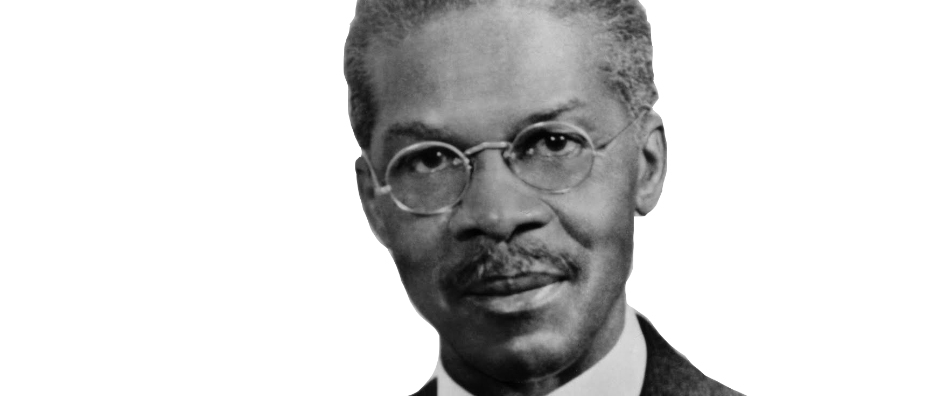Throughout the intricate tapestry of American history, there are figures whose lives exemplify the profound intersection of justice, spirituality, and social transformation. One such luminary is Louis Gregory, an African-American attorney, whose unwavering commitment to the ideals of freedom and equality earned him the revered title of an “Emancipator of the Soul.” His journey is not merely a narrative of personal triumph; it is a poignant metaphor for the emancipation of the human spirit from the shackles of prejudice and inequality. This article delves into Gregory’s life, his contributions to the Bahá’í Faith, and the monumental impact he had on both individuals and society at large.
Louis Gregory was born in 1874 in the bustling city of Washington, D.C. Raised in a milieu where racial discrimination was a pervasive reality, Gregory developed a keen awareness of the injustices afflicting African Americans. The early years of his life served as the crucible that forged his commitment to confronting the entrenched societal ills. Enrolling in Howard University, a prestigious institution known for its advocacy of African American rights, Gregory honed his legal expertise. He understood that the law could serve as both a weapon and a shield in the struggle for equality—an understanding that would guide his subsequent endeavors.
After completing his education, Gregory embarked on a legal career, skillfully maneuvering through the complexities of the American legal system. However, his work transcended mere legalistic endeavors; it embodied a deeper spiritual calling. It was not long before he encountered the Bahá’í teachings, which resonated profoundly with his aspirations for a more just and equitable society. The principles of unity, justice, and revolutionary love espoused by the Bahá’í Faith ignited within him a fervor to act—not just as an attorney, but as a moral compass illuminating the path toward social reform.
The metaphorical transformation that Gregory underwent is akin to the metamorphosis of a caterpillar into a butterfly—he emerged with wings of conviction, poised to embrace a world in desperate need of healing. He became an emblem of the Bahá’í ideal that religion should empower individuals to uplift humanity. Under this banner, he organized and participated in numerous initiatives aimed at combating racial prejudice. His advocacy sought not only to achieve civil rights but also to foster a sense of spiritual identity among African Americans.
Gregory’s accomplishments as a lawyer were remarkable, yet his legacy is indelibly linked to his role as a spiritual leader. He became a part of the African American Bahá’í community, which was itself a blend of diverse backgrounds and experiences. In this context, he served as a bridge—a figure who connected the legal struggle for civil rights with the spiritual quest for truth and unity. His engagement with the Bahá’í teachings allowed him to reframe the struggle for justice as a collective, spiritual endeavor. Hence, Gregory’s work can be likened to the forging of a new instrument, one that resonated with the harmonic chords of equality and justice.
As Gregory delved deeper into the Bahá’í teachings, he often emphasized the importance of education. He believed that enlightening the minds of the oppressed was paramount to achieving true liberation. He asserted that “the education of one woman is the education of her family,” highlighting a profound insight that remains relevant today. By advocating for the education of women and girls, he sought to dismantle the systemic barriers that perpetuated inequality. For him, education was not merely an intellectual pursuit; it was the quenching of a spiritual thirst—a means to liberate the soul from ignorance.
In his role as an educator, Gregory exemplified the Bahá’í teaching that “the earth is but one country, and mankind its citizens.” He traveled extensively, sharing his insights and experiences in various speaking engagements. These journeys became pilgrimages of solidarity, as he articulated the shared destiny of humanity—a vision that transcended the boundaries of race, ethnicity, and class. His message resonated deeply, stirring the hearts of many who were yearning for a transformative vision of society.
In his later years, Gregory faced considerable challenges, yet his spirit remained unyielded. He became a beacon of hope for countless individuals who found themselves ensnared in the web of despair and disenfranchisement. Many who encountered Gregory found their own “emancipation of the soul,” inspired by his unwavering dedication to the principles of love, justice, and unity. His life was a testament to the idea that true freedom extends beyond physical liberation; it is a journey toward self-actualization and spiritual enlightenment.
In conclusion, Louis Gregory stands as a towering figure whose legacy transcends his time. His life embodies the intricate interplay between the quest for justice and the pursuit of spiritual truth. The profound metaphor of emancipation serves as a reminder that both individual and collective destinies are inextricably linked—each person’s journey toward freedom contributes to the greater narrative of humanity. As we navigate the complexities of the contemporary world, Gregory’s life continues to inspire, reminding us of the power of love and unity in the never-ending struggle for justice. His story is a clarion call to all souls yearning for emancipation—charting a path toward a more just and unified world.
